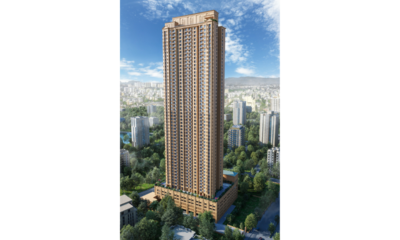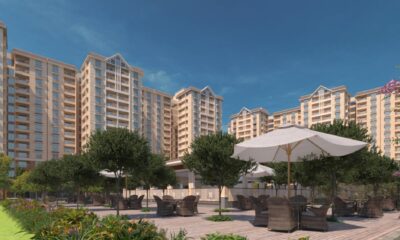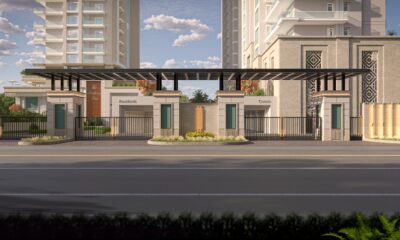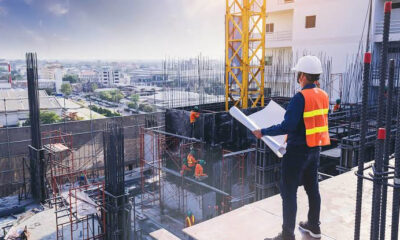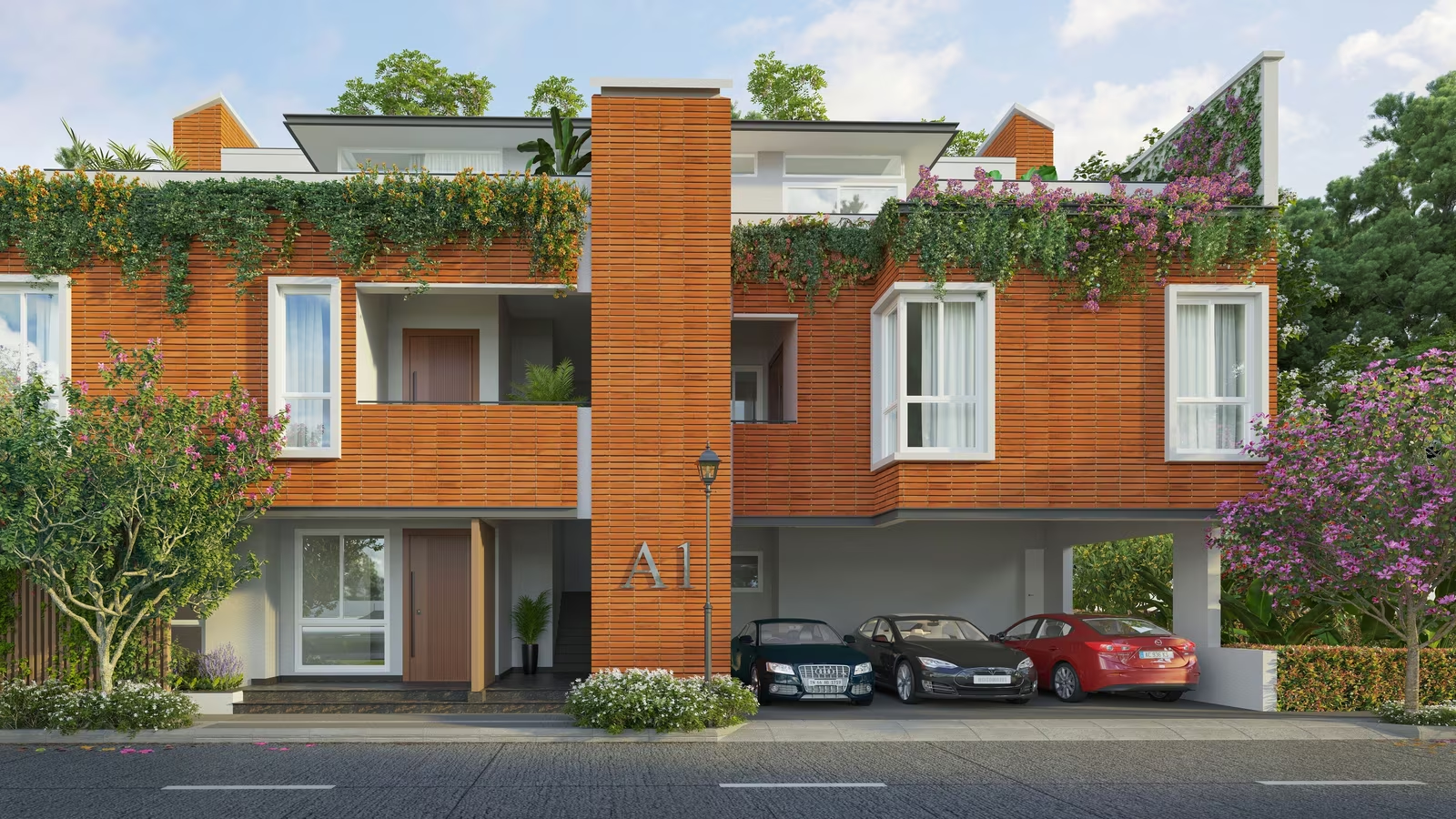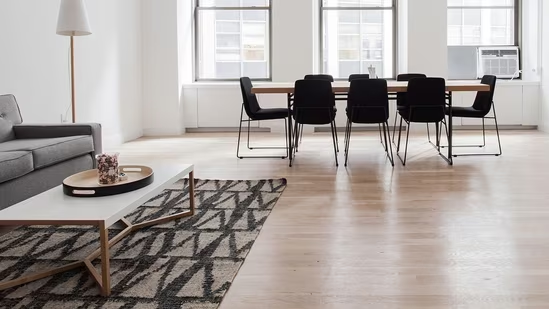Report
Senior Housing released by PHD Chamber with Quotes from Dignatiries
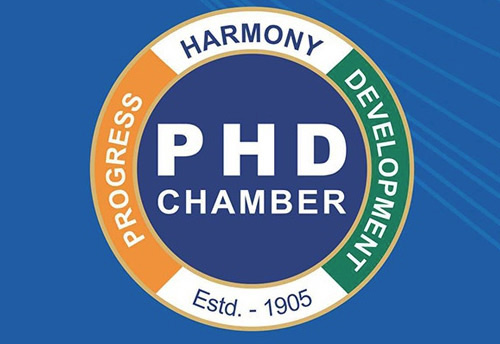

The senior housing sector is estimated to reach from US$ 1.26 billion in 2016 upto US$ 7.7 billion by 2030 on account of conducive framework in our country: PHD Chamber of Commerce
It is necessary to recognize that senior citizens are a valuable resource for the country and create an environment that provides them with equal opportunities, protects their rights and enable their full participation in society. Thus, extending support for senior citizens to ensure their social security, healthcare, shelter and welfare. Therefore, senior housing would appropriately meet the needs of elderly population. Senior housing has evolved over the years to better match the new demand and lifestyle of seniors by offering a broader range of choices and variety of care facilities that allows senior to age with comfort and security. The senior housing sector in India is at a nascent stage with huge opportunities for the real estate developers, service providers, healthcare players and operators. Unlike western countries where the senior living sector has gained maturity, India has huge untapped potential in the sector.
The present study focuses on to analyse the trend of senior housing sector in India, study the view of key players or stakeholders operating in this sector in India, both from the perspective of key players or stakeholders operating in this sector and consumers perspectives. A survey of about 30 senior housing projects developers, 486 senior housing residents survey and 2,598 prospective consumers survey have been undertaken. According to the survey, around 30% of the developers have been operating senior housing projects in India for about 2-5 years, 25% for around 1-2 and 5-7 years each and only 20% for more than 7 years. This is due to the fact that senior housing is a nascent sector in India and has only taken off since the beginning of the 21st century.
The survey highlights that around 60% of the companies operating senior housing projects in India are of Indian origin, 30% are operating in Joint Venture with Indian Companies and only 10% are companies are of foreign origin. According to the survey, around 80% of the developers have developed less than 5 senior housing projects on an average, whereas 15% of the developers have developed more than 5 projects and only 5% of the developers have developed more than 10 projects. This may be attributed to the hurdles faced by the developers related to land acquisition, financial assistance and regulatory framework etc. while undertaking senior housing projects.
According to the survey, senior housing projects in India have different square feet rates in different regions across India. According to the survey findings, the per square feet rates for Western region varies between Rs. 9000-10000, Southern region varies between Rs. 4000-8000 and Northern region varies between Rs. 5000-7000 respectively.
The survey reflected that average time to complete all the procedural formalities to start senior housing project in India varies from 3 months to more than 12 months. While 55% of the developers are of the opinion that it takes 6-12 months to complete the procedural formalities, 35% of the developers responded that the time varies from 3-6 months and 10% of the developers believe the time taken is more than 12 months. This is due to various cumbersome formalities related to land registration, obtaining a construction permit, electricity connection and various other formalities across India.
According to survey findings, around 60% of the developers offer complete sale model, 30 % offer only lease deposit model and only 10% of the developers offer pure rent model. About 30% of the developers provide post retirement employment assistance programmes to their residents and 70% of the developers provide loan facilities to the buyers of senior housing flats/apartments. According to the survey, the average price range of Senior Housing projects varies across India with 1BHK ranging between Rs 25-40 lakhs, 2BHK in the price range of Rs 40-80 lakhs and 3BHK in the range of Rs 80- 150 lakhs.
According to the survey findings, around 78% of senior housing projects in India are operating in the Western and Southern regions, while only 22% exist in Northern India. Senior housing sector has enormous potential if viewed from the size of the sector in 2016 till the projected year of 2030. On the basis of growth perceptions of the senior housing sector and survey, the sector has the potential to enter double digit growth, going ahead, on account of conducive regulatory environment, reviving investments in economy and expanding consumer base across all regions of the economy. According to the survey, developers felt that the size of the sector is estimated to reach from US$ 1.26 billion in 2016 upto US$ 7.7 billion by 2030 on account of conducive framework in our country.
According to the residents’ survey, about 65% of the residents have purchased their apartment/flat/independent house in senior housing projects. The income levels over the past many years have risen and provided scope for increased savings. Therefore, savings at the time of retirement supported them to buy property. Around 25% of the residents have opted for Lease Deposit Model and remaining around 10% respondents have opted for Pure Rental Model. The survey has revealed that a large percentage of residents (43%) purchased 2BHK apartments, followed by 1BHK apartments (26%), 3BHK flats (21%) and remaining 10% purchased independent villas.
All respondents unanimously have opined that with rising age, the inclination towards healthcare facilities and food requirement increases, while the requirement for shelter tends to remain minimal, therefore small apartment size fulfils their need. The survey has revealed top ten priorities of residents while choosing a senior housing project. Location of the project has been ranked first, size and space of the project at second rank, comfort and design features at third rank, followed by independence, security, quality of life, price of buying a unit, cost of maintenance, health care services and facilities offered by service provider.
According to the prospective consumers survey, 78% of the total respondents have expressed their interest in opting for senior housing owing to various factors such as ease of living with supported facilities like assistance in day to day activities, healthcare facilitates, recreational activities for remaining socially connected etc. It has been observed during the survey that large share of respondents (33%) have preferred to opt for senior housing between the age group of 65-70 years, followed by 29% respondents opined to opt for senior living between 60-65 years of age and 19% respondents have expressed their interest to opt for senior housing between the age group of 70-75 years.
According to the survey, the key cities emerged as a retirement friendly destination in the Northern Region are NCR, Chandigarh, Dehradun, Lucknow, Jaipur and Amritsar. While in the North-Eastern Region, the emerging retirement cities are Guwahati and Shillong. In the eastern region, Ranchi, Jamshedpur, Kolkata and Patna are the emerging cities. Mumbai, Pune, Nasik, Ahmedabad, Vadodara, Panaji and Surat are the cities opted by the residents in the Western Region as favourite retirement destinations. Bengaluru, Chennai, Hyderabad, Coimbatore, Mysore and Puducherry are the key cities in the Southern region which have emerged as their preference for post retirement destinations. The key reasons for cities emerging as a retirement friendly destinations is on account of factors such as better connectivity, native places, familiarity with area, climatic familiarity, better employment opportunities for their children, etc
Most of the respondents (about 70%) have opined that top five places which will emerge as a retirement friendly destinations are Bengaluru, Hyderabad, Mumbai, NCR and Chandigarh. About 52% of the respondents have expressed their interest in post retirement employment assistance in areas like education, teaching, administrative, NGOs etc. Further, about 57% of the residents have opined that they would like to opt for loan facilities for purchasing senior living homes.
The key challenges for the senior housings sector in India are lack of availability of skilled manpower, lack of affordability, social stigma, lack of awareness and high cost of marketing. Rising nuclear families and working population of our country is giving push to seniors to prefer living separately and simultaneously remaining socially connected and fit. Hence, senior living concept is expected to emerge at an impressive growth rate in the coming times. Large number of senior today prefers to remain independent, financially stable, well informed, socially connected and therefore demand for senior housing sector is likely to grow in the coming times. Growing Senior housing sector is likely to push growth, productivity, investments and employment in other sectors of the economy such as healthcare, construction, hospitality, etc. The sector will generate employment opportunities as large number of trained and skilled manpower is needed such as doctors, paramedical staff, professionals and care workers working in areas of setting up, executing and operating senior
housing premises.
In India the size of the elderly population, i.e. persons above the age of 60 years is fastly growing. For a developing country like India, this may pose mounting pressures on various socio economic fronts including pension outlays, health care expenditures, fiscal discipline, savings levels etc. This segment of population faces multiple medical and psychological problems. Hence, there is an emerging need to pay greater attention to ageing-related issues and to promote holistic policies and programmes for dealing with the ageing society. Regulatory body must be established for senior housing sector in India in order to invite genuine stakeholders to participate and promote fair plays in the market.
There is need to carefully examine the needs of elderly population and focusing on well versed geriatric facilities and use of innovative delivery models for comprehensive development and security of the elderly. Further, there is a need to introduce a single window mechanism for the elderly to enable them to obtain all facilities including life insurance, health insurance and information about senior living apartments under one roof. Government should facilitate developers by setting up hospitals, police stations, health camps, etc nearby senior housing projects to generate its acceptability and confidence among the society. Going ahead, our country needs more and more health and medical services, facilities and resources to fulfill caring needs of aged persons so that this section of the population should be capitalized in the process of growth and development of economy.
Mr Rajeev Talwar, Vice President, PHD Chamber stated that we have got a very good mix in India, a part of which is the demographic dividend and a part of the demography ageing group. It is necessary to recognize that senior citizens are a valuable resource for the country and create an environment that provides them with equal opportunities, protects their rights and enable their full participation in society. Going ahead, senior housing would appropriately meet the needs of elderly population and will promote their welfare and livelihood aspects.
Mr Ankur Gupta, Joint Managing Director, Ashiana Housing Limited the one of the pioneers of senior housing in india shared his experience as a developer and opined that there is a need to better understand the senior living in India and it should be taken seriously in the times to come. He also emphasized that the Government of India should lay more emphasis on senior housing in terms of land availability throughout the country and make senior housing attractive for developers by giving some kind of benefits on GST or RERA.
-



 News4 weeks ago
News4 weeks agoKW Delhi 6 Mall Onboards New Brands
-



 News4 weeks ago
News4 weeks agoManasum Senior Living Launches IKIGAI GOA, A Senior Living Community in North Goa, in collaboration with Prescon Homes
-



 News4 weeks ago
News4 weeks agoBridging India Divide: Top 5 Tier- 2 Cities to Focus On
-



 News4 weeks ago
News4 weeks agoCommercial Realty Gets Tech Savvy: Fast Construction, Enhanced Convenience
-



 News3 weeks ago
News3 weeks agoGodrej Properties Sells Rs 3k cr+ Homes of Godrej Zenith, Gurugram, within 3 days
-



 News4 weeks ago
News4 weeks agoMultipoint Connection – A Definite Boon
-



 News3 weeks ago
News3 weeks agoRBI’s Status Quo on Key Policy Rates to Help Maintain the Real Estate Growth Momentum, Say Industry Stalwarts
-



 News2 weeks ago
News2 weeks agoOlive Announces Dhruv Kalro as Co-Founder







